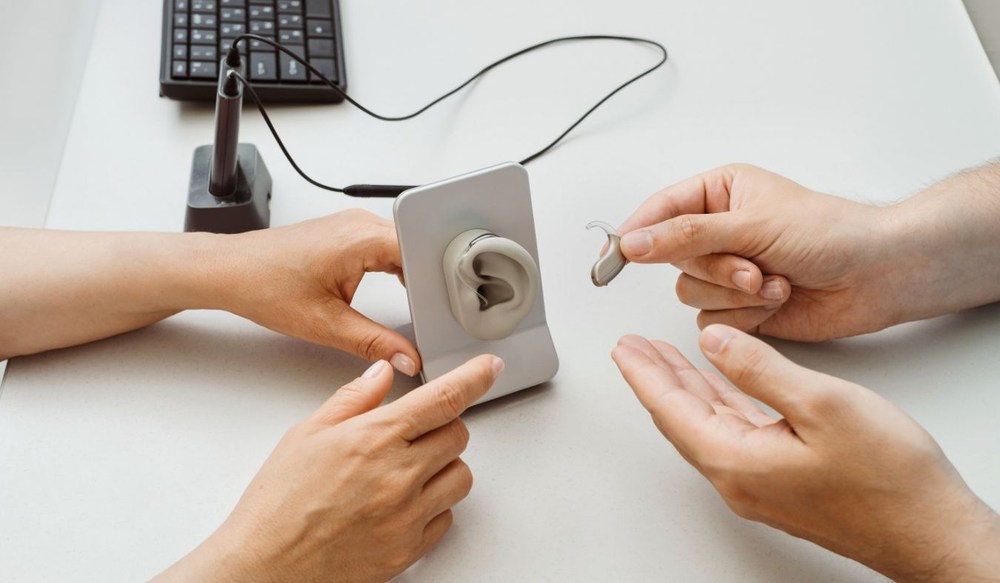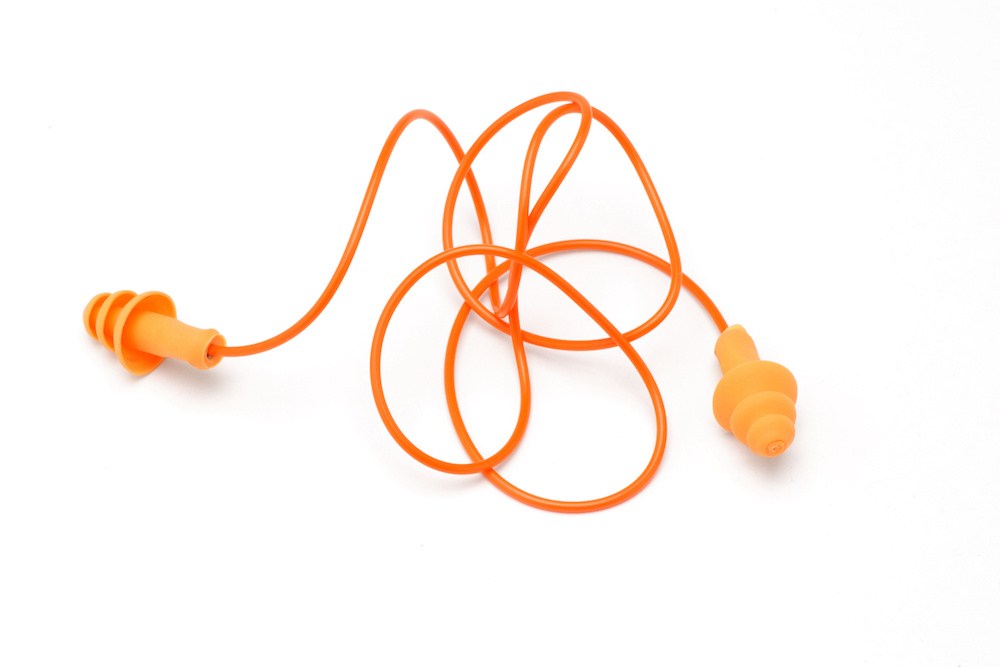How to Create a Quiet Space for Optimal Hearing Health
Most of us don’t think much about the noise around us until it

By: admin | April 24, 2025
When you rely on hearing aids every day, keeping them in good working order becomes an important part of your routine. These devices help you participate fully in conversations, enjoy entertainment and stay alert to the sounds around you. Like any technology you use daily, hearing aids occasionally need maintenance or repairs to continue performing their best.
We know that even temporary issues with your hearing aids can disrupt your daily activities and communication. Understanding the warranty and repair options available for your devices gives you peace of mind and helps you address problems quickly when they arise. Taking care of your hearing aids isn’t just about protecting a purchase – it’s about ensuring you maintain consistent access to the sounds that matter in your life.
Hearing aid warranties can be as diverse as the devices themselves. Some offer comprehensive coverage that includes damages, loss and even regular maintenance. Others may only cover specific aspects like manufacturing defects or technical malfunctions. Knowing exactly what your warranty covers is key to avoid any unwelcome surprises later.
Some warranties might cover everything from minor repairs to complete replacement of the device, while others might only cover specific parts or services. This difference can greatly influence potential out-of-pocket expenses if you ever need to repair or replace your hearing aids. Taking the time to understand the details of your warranty is a crucial part of being a responsible hearing aid owner and can save you both time and money in the future.
Similarly, repair rules can vary greatly based on the manufacturer and model of your device. Some may offer in-house repairs while others might require you to send in your device for servicing. Knowing these details in advance not only saves you time but also prepares you for any situation that may arise with your hearing aids.
Manufacturer warranties typically come with your hearing aids at purchase. They usually cover defects in materials and workmanship for a specified period, typically one to three years. This means if something goes wrong with your hearing aids during this time through no fault of your own, the repair or replacement should be done at no cost to you.
Extended warranties can be purchased separately and provide additional coverage beyond what’s included in the manufacturer warranty. These can range from covering accidental damage to offering loss protection. It’s important to remember, though, that not all extended warranties are alike; some may offer more comprehensive coverage than others.
Going through any warranty associated with your hearing aids before making a purchase decision is essential. Knowing what is covered – and what isn’t – can help you avoid unexpected costs later and ensure that you’re fully protected should anything happen to your devices.
These warranties are a fundamental part of your investment in better hearing, and knowing their coverage can save you from unexpected surprises. A standard hearing aid warranty generally covers defects in the material or workmanship of the device. This means that if your hearing aids aren’t working as they should due to a manufacturing issue, you’re protected. But each manufacturer may have slightly different terms within their warranty.
Here’s a quick rundown of what most standard warranties cover:
Next, let’s discuss repair policies for common hearing aid problems. Understanding how these policies work is crucial in managing your device effectively. They outline the steps you need to take when dealing with typical issues, helping you get back to enjoying the benefits of your hearing aids faster.
For instance, a common issue might be battery failure or blockage in the microphone or receiver. In such cases, some manufacturers may allow for in-house repairs or replacements depending on their policy rules. Understanding these policies can prepare you for any unexpected issues and ensure quick resolution.
Also, not all problems require professional repair. Sometimes a simple cleaning or changing of batteries can fix minor issues. However, always consult with your hearing specialist before attempting any fixes yourself to avoid causing further damage to your devices. This knowledge will give you confidence and make owning a hearing aid less daunting and more beneficial in the long run.
As we continue discussing warranties, it’s important to consider the benefits of extended warranties. While your hearing aids come with a manufacturer’s warranty, you might be wondering if an extended warranty is worth the extra cost.
Extended warranties provide additional protection beyond what’s covered by the standard warranty. This can include coverage for accidental damage, loss of the device and even regular maintenance in some cases. These extra benefits can give you an added layer of security and peace of mind when it comes to caring for your hearing aids.
However, just like any other type of insurance policy, whether or not an extended warranty is worth it depends on several factors. These may include how often you use your hearing aids, your lifestyle and daily activities, as well as how well you tend to take care of your devices.
Understanding both standard and extended warranties will help ensure that you’re making a fully informed decision when purchasing your hearing aids. By weighing all these factors carefully before making a purchase decision can help ensure that you’re adequately protected should anything happen to your devices while also getting the best value for money.
If you suspect your hearing aids need repair, start by checking for simple fixes like cleaning the device, replacing the battery or ensuring the settings are correct. If the issue persists, contact your hearing specialist or the manufacturer to review your warranty coverage. They’ll help determine whether the problem qualifies for a warranty repair and guide you through the next steps. In most cases, you’ll need to bring your hearing aids to your provider for evaluation, or they may ask you to send them directly to the manufacturer for service.
Once your hearing aids are sent in, the repair process depends on the nature of the issue. Some minor problems can be fixed in-office, while more complex repairs may require factory servicing. If your devices must be shipped out, ask about turnaround times and whether loaner hearing aids are available. When your repaired hearing aids are returned, your provider will test them to ensure they’re working properly before you take them home. If issues persist, follow up promptly to make sure everything is fully resolved under your warranty.
When a hearing aid repair isn’t covered under warranty, costs will depend on the type of issue and whether it requires in-office servicing or manufacturer repairs. Some fixes, like replacing tubing or minor component adjustments, may be relatively simple and affordable. More involved repairs, like fixing internal components or addressing moisture-related damage, may require sending the device to the manufacturer, which can take more time and come with a higher cost. Some providers offer repair plans or service packages for out-of-warranty devices, which can help manage expenses while keeping your hearing aids in good working condition.
If your hearing aids need frequent repairs or the cost of fixing them is approaching the price of a new device, it might be worth considering an upgrade. Many providers offer trade-in options or financing plans to make replacements more manageable. If you move forward with a repair, ask about estimated costs, turnaround time and whether a loaner device is available while yours is being serviced. Understanding your options ensures you get the most value from your hearing aids while maintaining clear, reliable hearing.
Regular maintenance and proper handling can go a long way in preserving the performance and durability of these valuable devices. Hearing aids are designed to be durable, but daily exposure to dust, moisture and natural oils from your skin can gradually affect their functionality. Taking a few simple precautions can help extend their lifespan and reduce the need for repairs.
Keeping your hearing aids clean is essential. Dust, sweat and earwax can build up over time, blocking microphones or speakers and leading to reduced sound quality. Using a soft, dry cloth to wipe them down daily helps prevent buildup. For deeper cleaning, specialized tools like a wax pick or small brush can help remove debris from crevices without damaging delicate components. Additionally, some hearing aids have filters or wax guards that should be replaced regularly to maintain optimal performance.
Beyond cleaning, protecting your hearing aids from environmental damage is equally important. Avoid exposing them to extreme temperatures, as excessive heat can warp plastic components and cold conditions may cause battery performance to decline. Moisture is another common cause of hearing aid malfunctions, so be mindful when wearing them in humid environments or around water. If you live in a particularly humid climate or sweat heavily, using a drying kit or dehumidifier overnight can help remove trapped moisture and extend their longevity. Always store your hearing aids in a cool, dry place when not in use, and when traveling, use a protective case to keep them safe from accidental drops or damage.
No one wants to deal with a malfunctioning hearing aid but knowing what to do when an issue arises makes the process much smoother. Whether your devices need a minor adjustment or a more in-depth repair, having a plan in place ensures you won’t be without them for long. Our team at Blue Ridge Hearing is here to help you navigate warranty coverage, repair options and any questions you may have so you can get back to hearing clearly as soon as possible.
If you’re experiencing trouble with your hearing aids or simply want guidance on routine maintenance, don’t hesitate to reach out. Whether you visit our Black Mountain, NC office at 828-608-3892, our Conover, NC location at 828-392-1981 or our Eden, NC branch at (828) 809-2176, our staff is ready to assist you.
Investing in a hearing aid is more than just buying a device – it’s an investment in your quality of life. Understanding all facets associated with owning one will enable you to have a better auditory experience. Don’t hesitate to reach out; clear sounds are just a phone call away.
Tags: benefits of hearing aids, hearing aid repair, hearing aid styles

Most of us don’t think much about the noise around us until it
By: admin | December 21, 2025

Summer activities often expose you to louder sounds than you might
By: admin | August 21, 2025

When you rely on hearing aids every day, keeping them in good working
By: admin | April 24, 2025